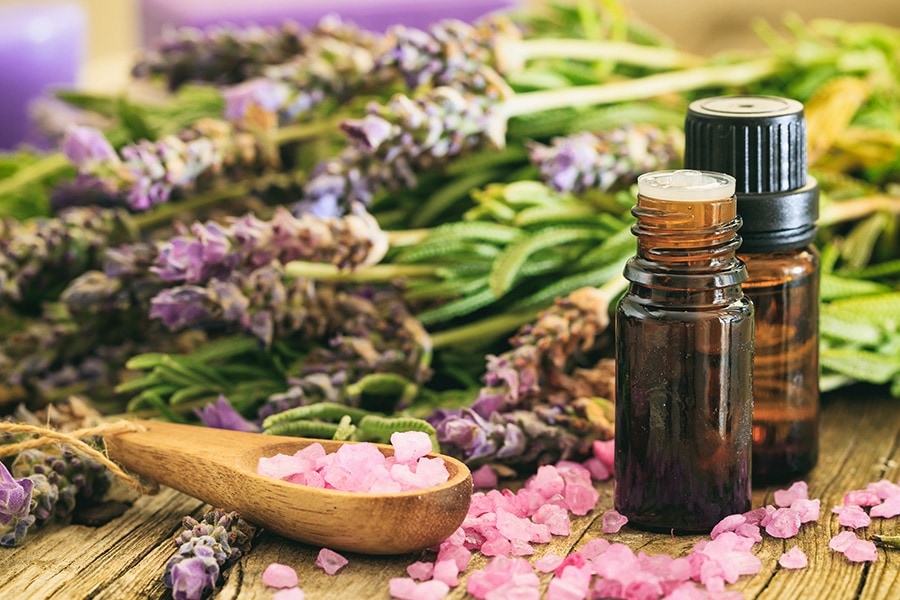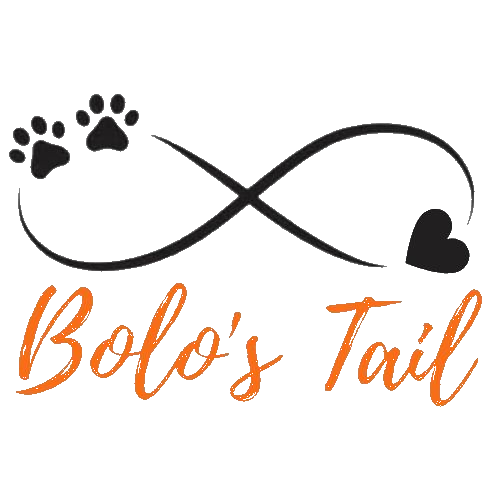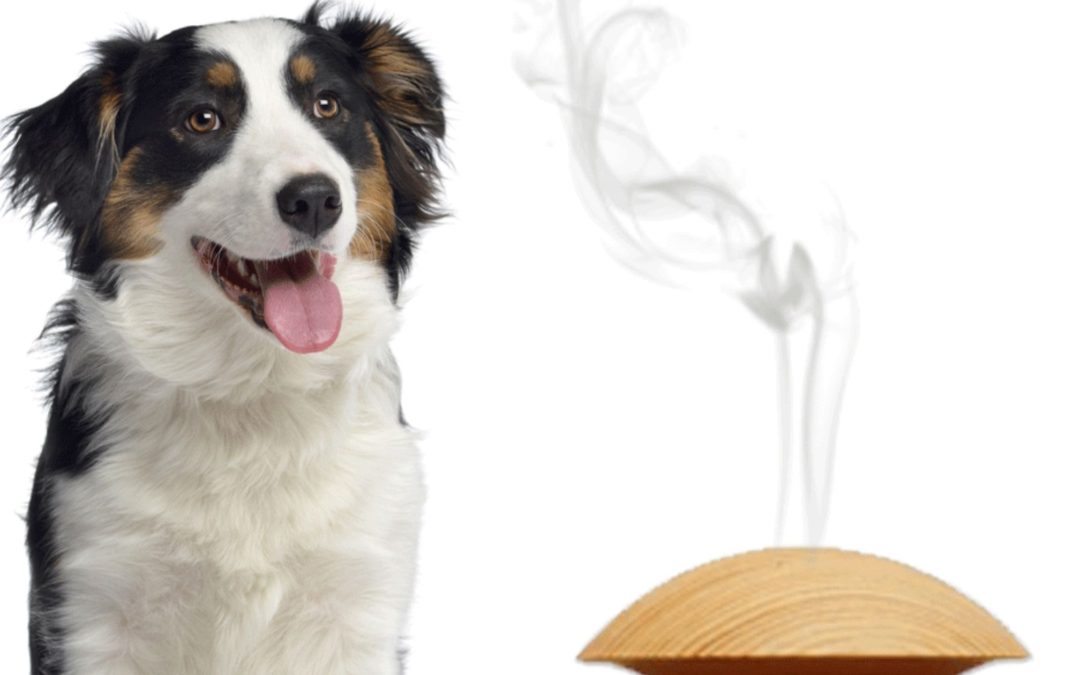Please consult your veterinarian before using any essential oils diffuser with your pet!
I’ve recently been seeing more and more stories on dogs being poisoned by essential oils used in diffusers. I was aware of certain oils that can be dangerous for dogs as I personally use a diffuser quite regularly, but thought some more research was needed. The topic of essential oils for pets is vast, and therefore this piece will only be in regards to oils used that are safe or unsafe, and the basics of their use in diffusers.
That being said, this is in no way a fully comprehensive list and so please check with your vet beforehand as all pets are unique and can have different reactions depending on their particular overall health conditions. However, my hope is this will help you begin to understand what oils to avoid, and what oils are safe and often therapeutic, and can be used for treatment of your beloved canine.
Essential oils are the concentrated liquid of plants. They are commonly used and popular in aromatherapy, alternative medicine, additives in health care, cleaning products, home air fresheners, etc. They are commonly being used nowadays in diffusers to improve the health and well-being of our dogs, often for treating anxiety and other issues. An example is lavender, this is probably the most commonly used oil for calming, for humans and dogs alike. Although there is not massive conclusive data as of yet that exists on the actual benefits to our pets, it has become more popular in recent years to try out this alternative method of treatment.

Essential oils are natural, but are they safe?
The first thing you should be aware of is there are a wide variety of essential oils on the market, many that could be harmful as they’re not of pure grade. Do your research and be sure to use only pure unadulterated therapeutic-grade oils. For this reason, I highly suggest you get yours from a reputable company, i.e., doTERRA. Check out any company before you invest in their oils to make sure they have excellent reviews and produce top-quality, organic oils.
Essential oils are very potent because they’re so concentrated. That’s why they’re best diffused via steam. Diffusers work for pets in the same way they work for us. Simply add one to two drops of essential oil to a water-based diffuser. However, when I run my diffuser in my home with my dogs, I always keep a window open for ventilation.
It is very important that your pet has room to roam, never lock a pet in a room with a diffuser going so they may be able to leave the room if bothered by certain smells. It is also recommended by some to only run it for 10 minutes at a time, then let the room clear for up to 30 minutes. Do not use in a small space in general, and try to keep your diffuser in an area away from your pet.
Essential oils in diffusers can be very harmful to your dog if they have underlying health issues, including breathing problems, as the droplets in the air can cause aspiration pneumonia. In this case NEVER use a diffuser with this pet in the home.
We must keep in mind that a dog’s sense of smell so far beyond ours, by up to 10,000 times, so obviously they’ll be much more sensitive than we are. What may seem a mild scent to us could be quite overpowering for your pet. I say pet in that dogs, cats, birds, etc. will all have various reactions and so some oils could be toxic for any one of these animals.
BE CAREFUL using any essential oils with any pet, and again, check with your veterinarian before use. He or she should be able to let you know which oils are potentially harmful and can also provide you with information about the best carrier oils to properly dilute essential oils for dogs, as well as appropriate dosages, when using them topically or internally.
Essential Oils Unsafe for Pets!
The following Essential Oils are often reputed to cause skin irritation, breathing difficulties, uncomfortable cooling effects, changes in alertness, weakness or fatigue, stumbling, vomiting, and paralysis, among various other potential effects. This list is not exhaustive:
- Anise Essential Oil
- Basil Essential Oil
- Birch Essential Oil
- Calendula Essential Oil
- Cassia Essential Oil
- Cinnamon Essential Oil
- Citronella Essential Oil
- Clove Essential Oil
- Cypress Essential Oil
- Eucalyptus Essential Oil
- Garlic Essential Oil
- Grapefruit Essential Oil
- Juniper Essential Oil
- Lavender Essential Oil
- Lemon Essential Oil
- Lime Essential Oil
- Myrtle Essential Oil
- Nutmeg Essential Oil
- Orange Essential Oil
- Oregano Essential Oil
- Peppermint Essential Oil
- Pennyroyal Essential Oil
- Pine Essential Oil
- Rosemary Essential Oil
- Spearmint Essential Oil
- Spruce Essential Oil
- Tansy Essential Oil
- Tea Tree Essential Oil (most common causing poisoning in dogs)
- Thuja Essential Oil
- Thyme Essential Oil
- Wintergreen Essential Oil
- Yarrow Essential Oil
- Ylang Ylang Essential Oil
Essential Oils Safe for Pets
- Cedarwood: Deodorize spaces, repel insects, ease stress and tension, encourage a good night’s sleep, respiratory support
- Chamomile: Eases upset stomach and mental and emotional stress, calming, supports skin health, promotes restful sleep
- Clary Sage: Calms nervousness, eases distress emotionally and mentally, anti-bacterial and anti-fungal properties
- Copaiba : Supports the cardiovascular, immune, digestive, urinary, respiratory, musculoskeletal, and nervous systems
- Frankincense: Promotes cellular health and immunity, supports the nervous system and digestive tract, elevates the spirit when experiencing shyness, fear, irritability, anger, and other negative feelings, anti-microbial/anti-bacterial properties
- Ginger: Reduces discomfort of joint pain, enhances digestive function, promotes easy breathing, calms inflammation, eases mental and emotional distress
- Lavender: Universal oil, useful in conditioning patients to a safe space, may help allergies, burns, ulcers, insomnia, anxiety, and car sickness Not for use with cats.
- Marjoram (Sweet): Decreases inflammation, reduces digestive discomfort, anti-bacterial and anti-fungal properties, calms the body and mind during times of nervousness, panic, restlessness, excitement, or hyperactivity, encourages sense of tranquility, relaxation, and confidence
- Myrrh: Calms the skin, promotes increased alertness, regulates emotions for greater sense of balance, encourages sense of tranquility, confidence, and security
- Petitgrain: Helps to calm the nervous and digestive systems. Good for dogs with stress or anxiety
- Valerian: Encourages restful sleep, eases mental and emotional distress, calms skin, supports wound healing, enhances digestive function, calms the body and mind during times of nervousness, panic, restlessness, excitement, or hyperactivity
- Vetiver: Aids in easing separation anxiety, calming, reduces fear
Peppermint, Lavender, and Eucalyptus seems to be a toss-up from my search online. I think so much information out there is reliant on the quality of the oil, dosage, method of exposure, etc. I’ve used all of these in my home for many years with no problems or side effects to my dogs.

What to look for if your dog has been inadvertently poisoned:
- The smell of essential oils on their fur, skin, breath or vomit
- Difficulty breathing
- Drooling
- Fatigue
- Weakness
- Difficulty walking or stumbling
- Muscle tremors
- Pawing at the mouth or face
- Redness or burns on their lips, tongue, skin or gums
- Vomiting
- Lethargy
- Diarrhea
As with any poisoning, an immediate reaction can save your pet’s life. If you notice any of these symptoms, or any other unusual behavior of your pet, call your veterinarian immediately, rush your dog to an emergency veterinary clinic, or contact the Pet Poison Helpline at (800) 213-6680.
More Essential Oil Safety Tips
- Only use essential oils with your dogs to address a specific, ongoing and active concern – not to prevent a health issue.
- Do not add essential oils to your dog’s food or drinking water.
- Avoid using essential oils with puppies under 10 weeks of age and with pregnant or nursing dogs.
- Do not use oils on epileptic dogs or dogs who are seizure-prone.
THE MOST COMMON HOUSE PETS THAT MAY BE SENSITIVE TO ESSENTIAL OILS
- Birds
- Cats
- Dogs (especially “flat-faced” breeds, which might have respiratory difficulties)
- Fish
- Guinea Pigs
- Hamsters
- Rabbits
- Baby animals
- Pregnant animals
- Old animals
- Sick animals
- Feeble animals
- Small breeds of animals
Please keep all essential oils locked up and away from your pets for their own safety!
All this being said, I’ve been careful over the years to use essential oils in my home with no adverse effects on any of my pets. By all means, do try them, but be careful and always keep your pet’s safety in mind!
For more in-depth tips on safety and the use of essential oils with pets, Kristen Leigh Bell’s book Holistic Aromatherapy for Animals is a well-regarded guide.



Wow, I was interested in this and i learned so much!!
Excellent Lotte, glad to here that! Thank you!
Great information. I learned so much.
Thank you Kelly !
Thank you Annette, I did too! There is so much conflicting information, it’s hard to get the facts. The quality of the oil seems to be the key though.